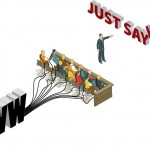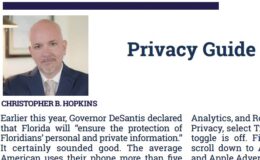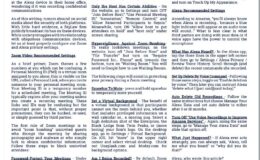A persistent problem for the jury system has been jurors using the Internet during jury selection and trial. Despite media coverage, the problem continues (even internationally).
But there may be a positive side of this issue: jurors are, like the rest of us, often tied to the internet or smartphones. Perhaps their use of the internet PRIOR to their involvement in trial might tell lawyers something about potential jurors. A better jury means a better trial.
In early 2009, I wrote an article about how to use the internet to research jurors during voir dire. This proved helpful as a practical trial technique and was (independent from my article) a practice quickly assumed by other lawyers.
But, while the voir dire data-mining effort is useful, it remains very Web 1.0. You are using the internet to gain information. Great, but that research method is too linear. Why? The jurors’ practical use of the internet may be as valuable, if not more, than their factual background information. Just ask — most of us are quite willing to discuss our internet habits. In fact, it might make for some compelling voir dire discussion (tailored to the case, court’s discretion, and time limits).
If you follow the 2009 article, you may stumble across an public Facebook page or an interesting Twitter feed in order to detect a better vantage of the juror’s personality. But openly exploring with jurors how they use the internet, what connections they make (news? personal? purchases?), and where they go may tell the lawyer a lot more about the person, how they think, their attention span, their methods of obtaining/retaining information, etc. That’s a Web 2.0 approach (to borrow a tiring phrase), if not more contemporary — and you do not have to use the internet. Just ask good questions.
Check out the December 2011 article from the Palm Beach Bar Bulletin, “What Are Your Jurors Doing on the Internet?” It may lead you to some new voir dire approaches.



